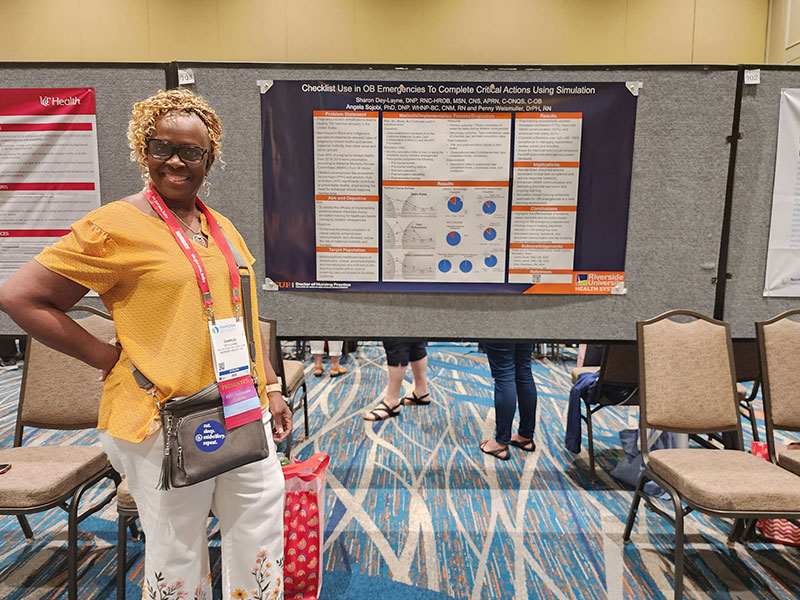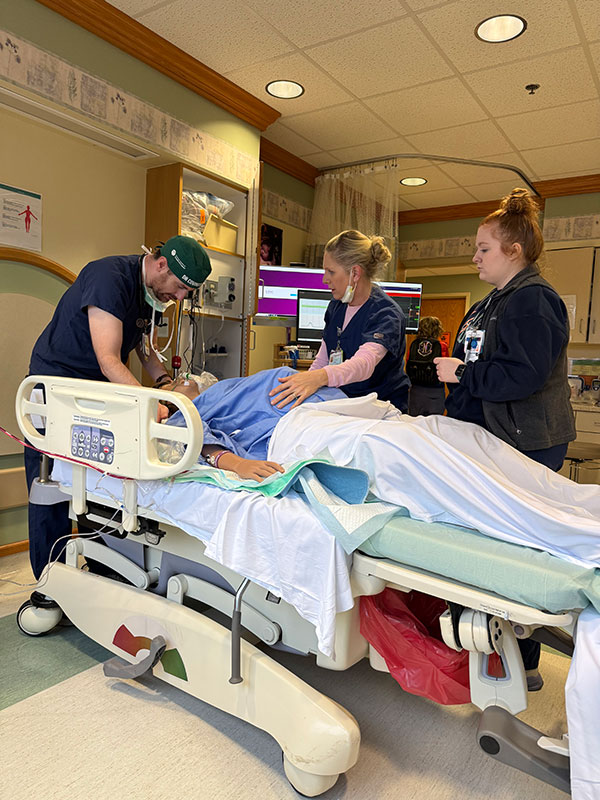After being a single mother for two years to my eldest son, Ethan, I didn’t think I would be having any more children until much later in life. However, I met my husband, Dylan, and a year later we were happily surprised with my pregnancy with our younger son, Oliver. I was going to try VBAC and had a healthy pregnancy with no concerns from my OB. Yet, my husband and I both had recurring nightmares of me dying on the table. I told Dylan they were just our subconscious reflecting our anxiety. I never would have thought that at 25 years old in one of the wealthiest states in the United States that I would be in danger of dying in childbirth. It’s just not something discussed—similarly to how much breastfeeding hurts or how you would rather walk on hot coals than pee for the nurse after a c-section.
The week before I was due with Oliver I had contractions that brought me to my hands and knees. But no dilation. My OB decided to schedule a c-section, and—though she to this day doesn’t understand why—ordered my blood to be on hold in the OR. She had told me she ordered it “just in case” even though I was healthy and had a great pregnancy. That decision is one coincidence of many that day that saved my life.
The day came for my scheduled c-section—February 3,2017, and Dylan and I went excitedly to our check in. I had a feeling again that I wouldn’t be seeing my beautiful boys. I asked Dylan to take a video of me for our boys. It was awkward, and I stumbled through it not knowing why I was doing it. The nurse came in and told me that the OB scheduled was changed and I would be getting one that typically teaches at USC. We shrugged, as I felt any would be better than having to go home and reschedule.
The surgery went well, until they pulled Oliver out of me. I began fading. I remember wanting to speak, but not being able to. Wanting to take in a larger breath, but not being able to. The nurse and the anesthesiologist noticed and took me to the PACU to monitor me. I have been told that I was holding Oliver when they noticed my hemorrhaging. They had to push on my abdomen where I had the incision to measure the blood loss. I began having tremors so badly they had to hold me down to get accurate blood pressure. I was awake for everything but remember finer details rather than bigger pictures. I remember reading my vitals when I turned to the nurse taking my blood pressure and my BP being 36. I remember telling my husband he needed to sit with the baby and eat something. I remember understanding they were going to take me back in to take my uterus, and that I looked the NP in the eye and shook my head in a silent beg. I remember the pain ripping through me, as I lifted my hips with the same abdomen that had been cut into and then pushed for an hour for the OB to save my uterus. I remember the OB coming into my room in the ICU letting me know that I should never have another child, because the stress on my heart and lungs would be too much. I was later told I had to have four bags of blood and one bag of platelets.
It wasn’t until the next day that I was told I had an amniotic fluid embolism that had—thankfully—gone to my lungs. The only reason I survived was all the coincidences. The blood on hand from my OB. The OB from USC who knew what an AFE was. The nurse and anesthesiologist noticing my being out of it in the OR.
The month after, I was diagnosed with PTSD and PPD. I began researching AFE and general maternal health. It was cathartic for me. It only took me another few months to go back to school to begin prerequisites for nursing school. Now, almost two years later, I am about to apply for nursing school with plans to continue my education to go into research. I am eternally grateful to the men and women who saved my life, and to the AFE Foundation that helped save my mental health. With the AFE Foundation, I found a group of women who understand when the little things, or the big, make me relive the trauma or spark frustration or anger at the unfairness and survivor’s guilt I feel at times.
Now, I look at that video I made for the boys and I can laugh at how awkward it is—I was never one for being in front of the camera. Now, I can look at the pictures of my battered and bruised body after the hospital and feel grateful rather than angry. Having an AFE sparked my passion for maternal health and research. I continue to believe I am here for a reason and try my best to live each moment with gratitude. Love every second of your most normal, boring day.


